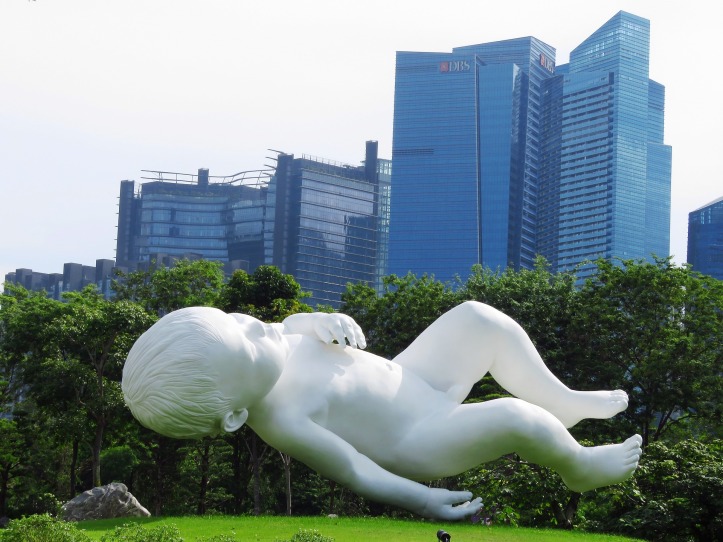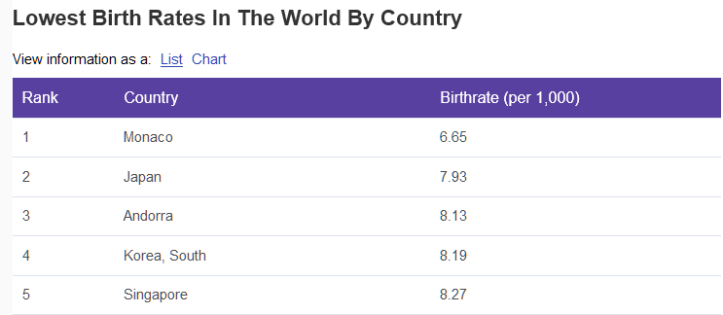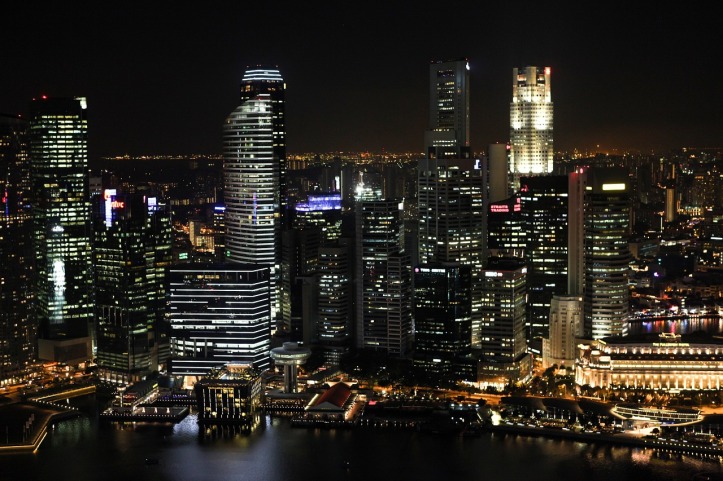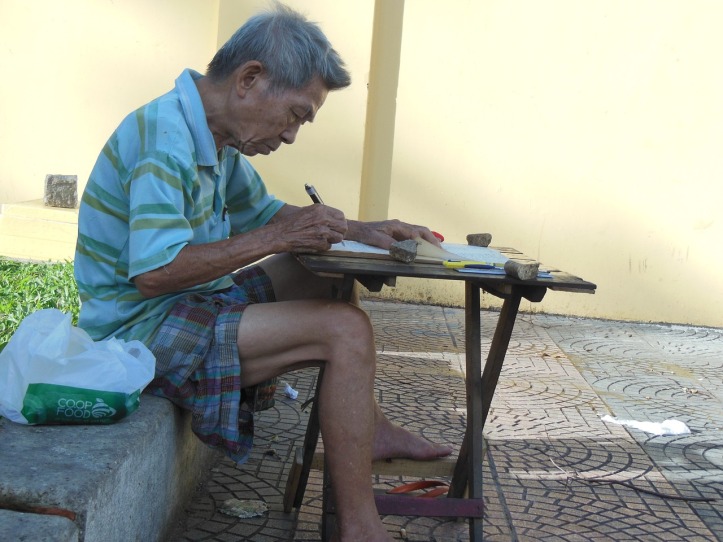Singapore welcomed 33,793 new babies in 2015, the highest in 13 years, thanks to the buoyant vibe of the SG50 celebrations and enhanced parental privileges.

But the tide soon turned in 2016. In February, sociologists already pointed out the rate would fall due to the gloomy economic outlook. (In other words, less money for everyone.) According to the report on WorldAtlas, a statistics website, Singapore’s birth rate of 2016 is the 5th lowest in the world:

The fact is that for almost 20 years, Singapore’s birth rate has remained very low. Fertility Rate of 2015 is only 1.24 births per female, far from the considered population replacement rate of 2.1.
It’s not a surprise that Singaporeans are so unwilling to give birth, and there are reasons to believe that this trend is very likely to continue.
1. Cost of living (and raising a child) is way too high.
For a couple of years, Singapore has remained the most expensive city to live in. It still holds the title for 2016.
Singaporeans’ Kiasu spirit has also injected a burning passion for getting “the best” for children into every parent. This has created a not-so-healthy competition between parents and even among kids, which further increases the cost of raising a child. Do you want to see your child losing out to other kids because you have not signed up for one dozen of extracurricular activities, talent cultivation programs and private tuition?

Though the government doles out handsome rewards to new parents, it is still everyone’s biggest worry: it’s not enough. Think about the most urgent thing after a baby is born: childcare. Not many people these days would like to stay home to be a full-time father or mother. That leaves you two options: either hire a maid or send the baby to the childcare center.
Hiring a maid may sound a good choice. Besides taking care of the baby, a maid can also help with household chores. But that comes at a cost. Based on the estimate by Singapore Baby, the initial stage of hiring a maid, including paperwork, processing fees and agency fees, is well above S$500. The ongoing monthly costs, such as maid levy, salary, medical insurance and personal accident insurance, add up to at least S$650 at the lower end.
That doesn’t count in the hidden cost: food, the maid’s home trip flight together with the processing fee and overseas exit certificate, medical bills, toiletries, food, electricity and so on.
The alternative is to send the baby to a childcare center. The average cost of full-day childcare is about S$700 to S$750 per month. With all the subsidies, it can come down to S$300 to S$400. For the majority, it’s considered affordable but nowhere near cheap. The private centers are more expensive, easily exceeding S$1,000 per month. If it’s infant care for babies below 18 months old, the average cost is S$1,500 per month.
This doesn’t include the transportation, additional fees that centers charge, such as uniforms, school activities and other stuff.
2. Working hours are too long.
Put the costs aside, can parents find sufficient time to look after a baby’s well-being, all the while working a job?
Since most parents have to work to make enough money, so that they can raise their children and get the best for them, they won’t get much time to actually see their children grow up.
It’s also understandable that working parents have a lot to worry about when they leave the baby to a maid without supervision. It’s not that we don’t want to trust maids, the truth is that we have heard of cases of neglect and even abuse. Not every maid is that irresponsible, but will anyone leave it to chance?
How about childcare centers? There’s a universal rule that parents have to pick up their children by 7pm, or they’ll face fines. It’s meant to instill a sense of responsibility in parents, but probably the centers have forgotten that Singapore has the longest working hours in the world, leaving parents struggling more to balance work and life.

Oh, yes, parents are entitled to 6 days of childcare leave – a very good benefit. Ask around, every childcare center practices unilateral center closures for teachers’ training, center cleaning or whatsoever. Guess how many days of closure throughout a year? Exactly 6 days. That must be an unfortunate coincidence.
3. No one else is gonna help you.
Perhaps the last thread of hope goes to family members. Chinese young parents are also working long hours, but they have one thing to count on: their own parents. Chinese grandparents almost always come to help to take care of the baby, sometimes four of them together from both parental and maternal sides. That has created the phenomenon of “little emperors” in China.
Singaporeans can only wish they’d get the same treatment. In more and more cases, our dads and moms have not even retired yet when our baby is born. Data from the Ministry of Manpower shows that over 40% of people aged 65 to 69 were still working in 2015, driven by the same worry that bothers young parents: not enough money. Only for the old folks, the money is for their retirement life.

The government has already decided to raise the age ceiling of re-employment to 67. By the time the grandparents retire, new parents must pray their own parents stay healthy long enough.